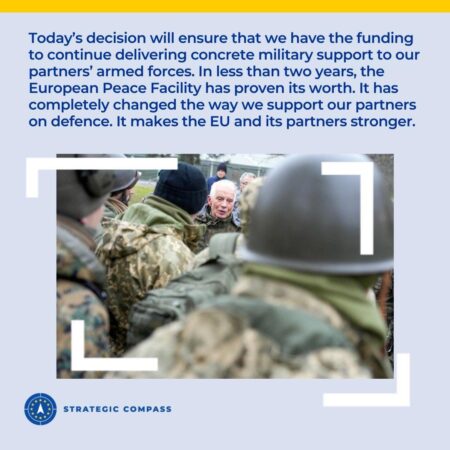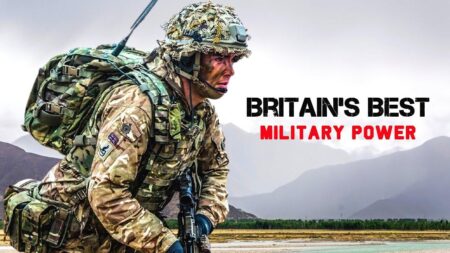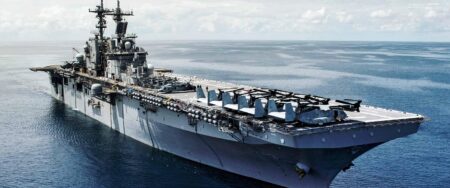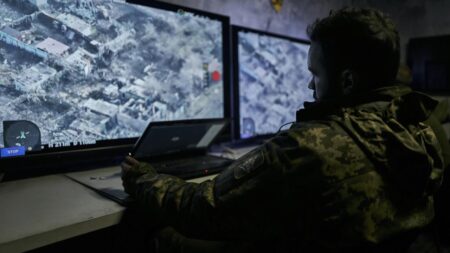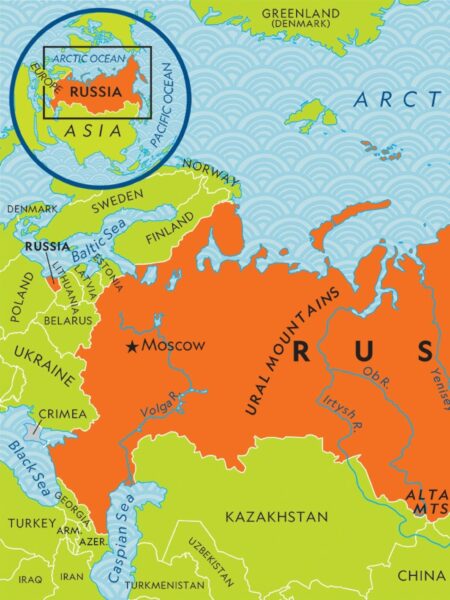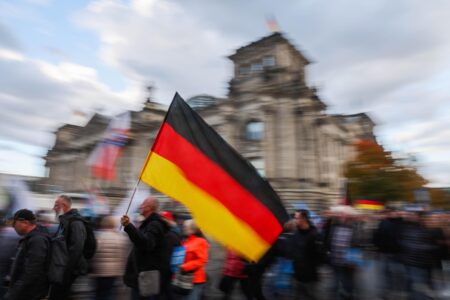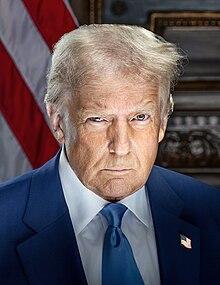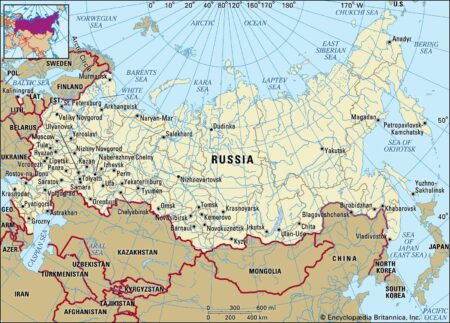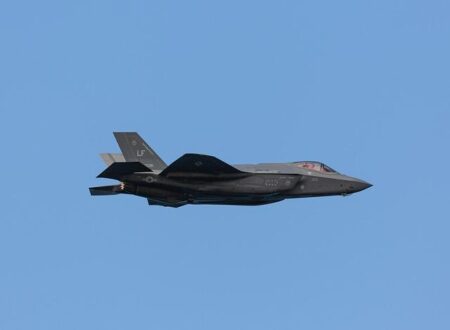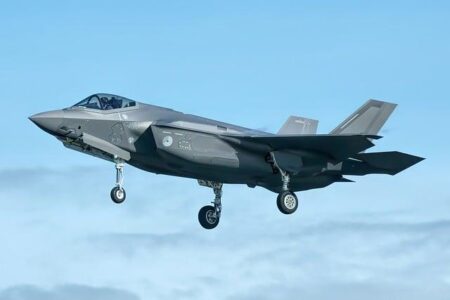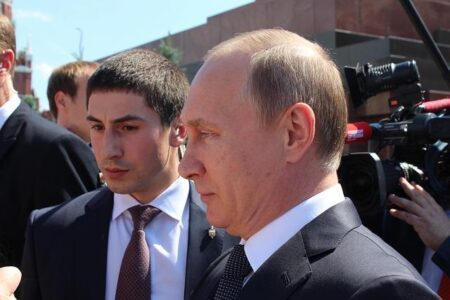Former President Donald Trump has taken aim at the U.S.-Japan security treaty, labeling it as “one-sided.” This bold statement has sparked curiosity about his true motives. Analysts speculate that he might be looking to shake things up by renegotiating the terms, aiming for a deal that aligns more closely with American interests and creates a fairer distribution of defense responsibilities.
Browsing: NATO
Australia is voicing its worries about Russia’s growing interest in establishing an air force base in Indonesia, highlighting potential security risks for the entire region. This unsettling development sends shockwaves through Southeast Asia, amplifying concerns over escalating geopolitical tensions.
Russia’s spy chief has warned that both Russia and Belarus are prepared to respond to what he describes as escalating tensions in Europe surrounding the situation in Ukraine. This statement underscores growing concerns over regional stability amid ongoing geopolitical conflicts.
The Kremlin warned that Germany’s potential shipment of Taurus missiles to Ukraine could lead to increased military tensions in the region. This statement reflects ongoing concerns about escalating conflicts as European nations reassess their support for Ukraine.
European nations have pledged billions in military assistance for Ukraine amid growing tensions. This commitment comes as a US envoy holds talks with President Putin, highlighting the escalating geopolitical dynamics in the region.
The UK’s military capabilities solidify its role as a key partner for Europe, enhancing collective defense and security. With ongoing geopolitical challenges, Britain’s commitment to NATO and regional collaborations underscores its strategic importance on the continent.
Albania has received a naval ship from Italy, enhancing its military capabilities and supporting NATO operations. The move is part of ongoing efforts to strengthen regional security and foster collaboration among alliance members.
Former top Ukrainian commander Valerii Zaluzhnyi has confirmed the establishment of a joint U.S.-Ukrainian command center in Germany. This move aims to enhance military coordination and support for Ukraine amid ongoing tensions with Russia.
In a recent statement, former Finnish Prime Minister Alexander Stubb urged France and the UK to initiate dialogue with Russia regarding the ongoing conflict in Ukraine. He emphasized that engagement could pave the way for a diplomatic resolution in the region.
Germany has activated 5,000 troops to bolster NATO’s eastern flank, responding to heightened tensions in Eastern Europe. This move underscores a commitment to collective defense as regional security concerns continue to escalate amidst ongoing geopolitical challenges.
Germany has announced a significant allocation of over ‚ā¨8 billion in military aid to Ukraine, reinforcing its support amid ongoing conflict. This funding aims to enhance Ukraine’s defense capabilities and underscores Germany’s commitment to regional stability.
In response to Russian President Vladimir Putin’s suggestion to replace Ukrainian President Volodymyr Zelensky with a temporary administration for peace talks, the US firmly rejected the proposal, reaffirming its support for Ukraine’s sovereignty and government.
In response to rising geopolitical tensions, particularly Trump’s favorable stance towards Putin, Germany is reconsidering its nuclear strategy. This shift highlights the country’s desire for greater security amid uncertainties in international alliances.
In a breakthrough negotiation, Russia and Ukraine have reached a cease-fire agreement in the Black Sea region, aimed at reducing tensions and fostering stability. Key details of the pact and its implications for regional security are under review.
French President Emmanuel Macron has pledged ‚ā¨2 billion in military aid to Ukraine ahead of an upcoming security summit. This significant support underscores France’s commitment to bolstering Ukraine’s defense amid ongoing conflict concerns.
Germany is intensifying its military modernization efforts by doubling down on the procurement of F-35 fighter jets. This move aims to enhance NATO capabilities and address evolving security challenges amid increasing geopolitical tensions in Europe.
Germany is allocating billions to enhance its military capabilities, marking a pivotal shift in European defense strategy. This significant investment comes amid rising security concerns, as the nation aims to play a crucial role in regional stability.
Recent US-Russia discussions in the Black Sea are raising alarms in Europe, as intensified military posturing and unresolved tensions could destabilize regional security. Analysts fear these talks may lead to heightened confrontations impacting EU-NATO dynamics.
In recent statements, German Defence Minister Boris Pistorius affirmed Germany’s commitment to acquiring the F-35 fighter jets, underscoring the importance of transatlantic cooperation in strengthening NATO’s defense capabilities amid evolving security challenges.
In a strategic assessment of the ongoing conflict, Al Jazeera English reports that Vladimir Putin may achieve his objectives in Ukraine amidst shifting dynamics. With international responses evolving, the implications for the region remain critical and far-reaching.

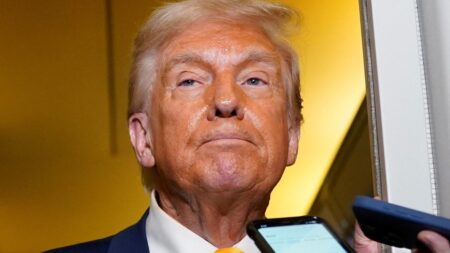

![Kremlin says Germany risks ‚Äėescalation‚Äô if it sends Ukraine Taurus missiles [video] – TVP World Kremlin says Germany risks ‚Äėescalation‚Äô if it sends Ukraine Taurus missiles [video] – TVP World](https://www.mondialnews.com/wp-content/uploads/2025/04/22439-kremlin-says-germany-risks-escalation-if-it-sends-ukraine-taurus-missiles-video-tvp-world-450x450.jpg)
